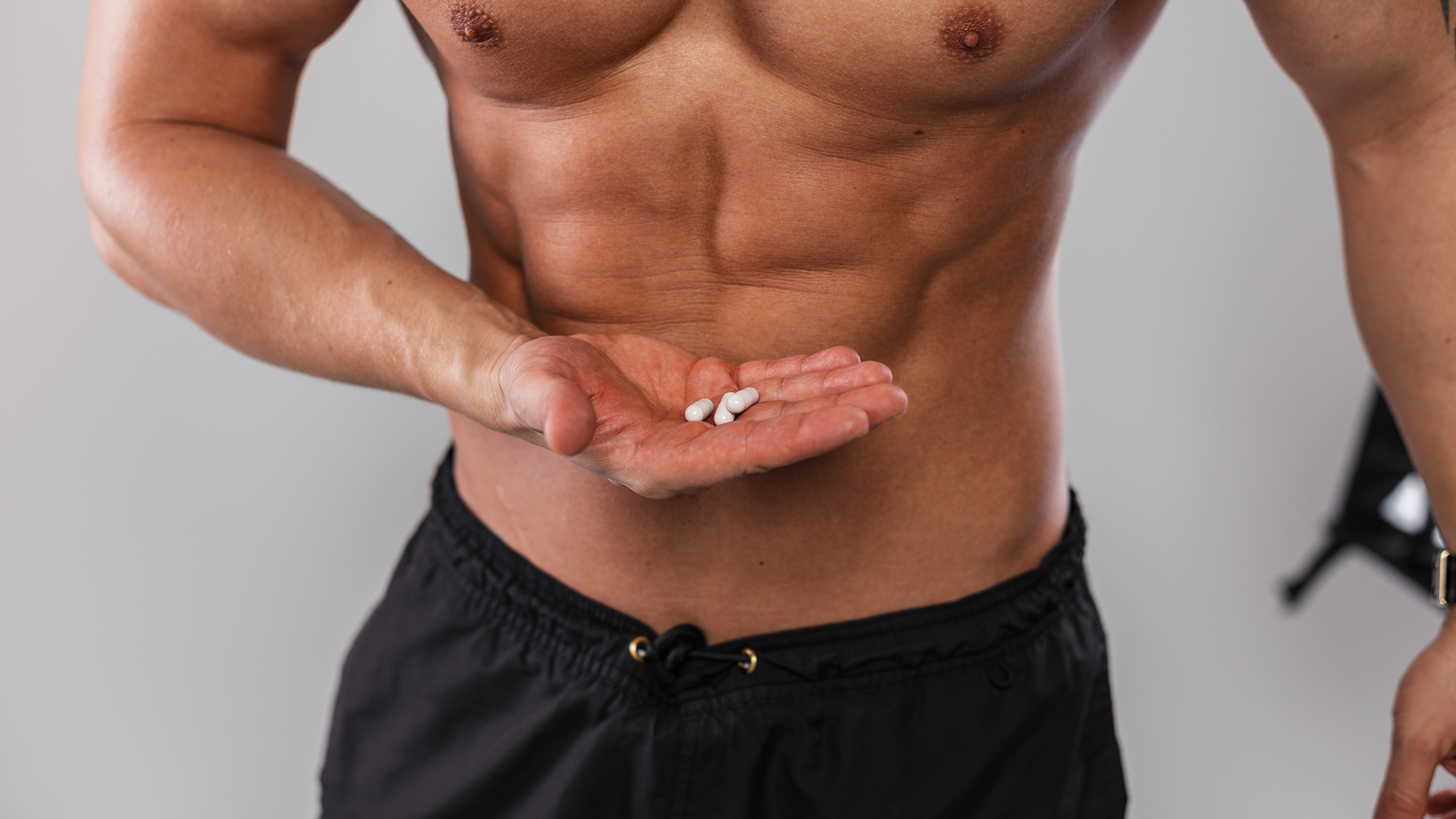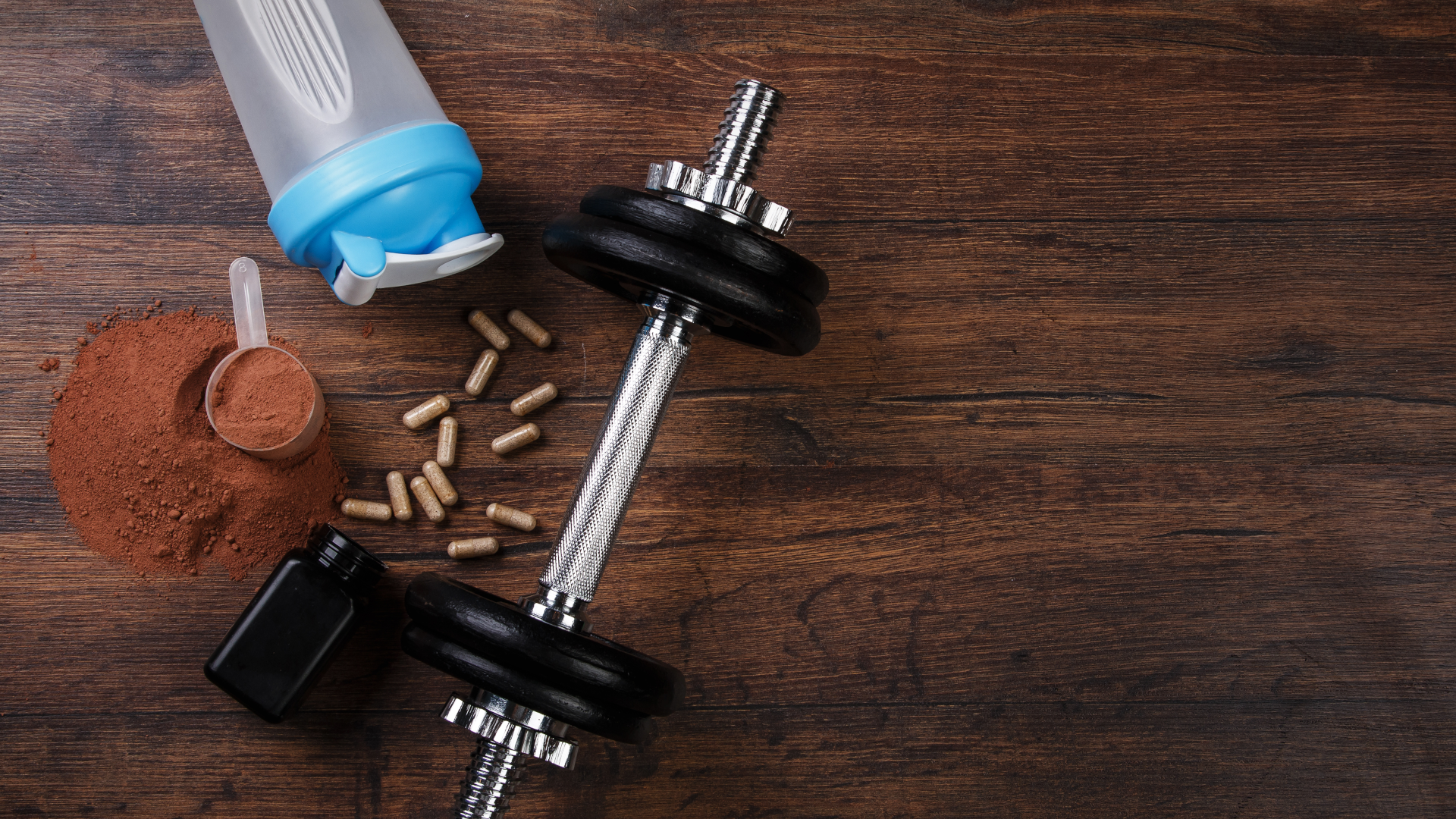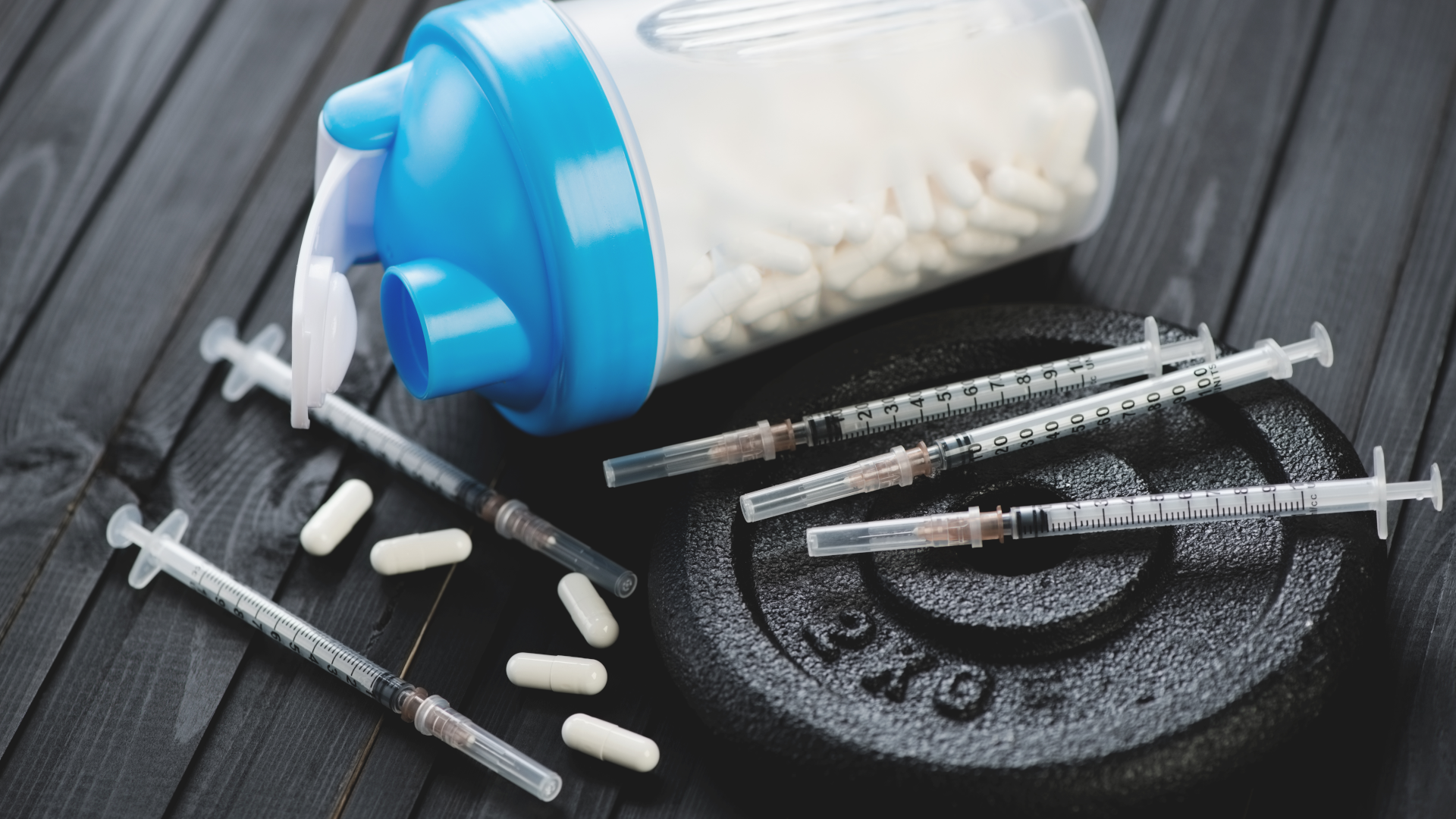Protein powder comes in several forms; whey protein, pea protein, soy protein and even more besides. But why do people use it? And perhaps more importantly, is protein powder good for you?
Why do people use protein powder anyway?
If you’ve spent any time around gym-goers, it’s likely you’ll have heard them talking about ‘protein shakes’ and ‘protein pills’. But why the fascination with increasing your protein intake through artificial means? And is it all really necessary?
The theory
In theory, taking protein powders and pills makes sense. After all, as bodybuilders, our goal is to lose fat and gain muscle – at the same time if at all possible. The rules of nutrition tell us time and again that the more protein we take in, the bigger our muscles will become (and the faster they will recover from workouts).
The average bodybuilder is recommended to eat anything from 180 – 220 grams of protein each day by some nutritionists, (in comparison to around 50 for a normal person). The trouble is, protein is very filling. It kind of makes sense then that bodybuilders should turn to protein powder to supplement their intake.
The reality
While protein is essential to building muscle, the truth is that some people are simply consuming too much – and they could be setting themselves up for health issues in later life such as osteoporosis or kidney problems. The government actually recommends consuming no more than twice the recommended daily allowance of protein each day, even if you have a heavy training routine, and encourages us to remember that a healthy, balanced diet is just as important as a protein-rich one.
What is whey protein?

Whey protein is probably the best-known protein powder available. It’s the original kind. A few years ago, before vegetarians and vegans were properly catered for, it was the standard type of protein powder you could buy.
Isolated from whey, it’s basically a protein powder created using the same whey you will know of as a by-product of the cheese production process. So no, it’s not vegan – but pea and soy protein powder is.
So is protein powder good for you?
The honest answer to this question is ‘It depends on how you use it’. If you’re vegan and you’re struggling to fit enough protein into your day, it may be a good thing. However, if you eat steak and beans for every meal, there’s a possibility that it’s not so good for you; especially if it’s taking you over double your recommended daily intake of protein.
But that’s not the only potential issue with protein powder.
Another hidden issue with protein powder
As you already know, protein in itself is very filling. You’ll also know that in order to gain muscle, you need to eat plenty of calories. Can you see the potential problem developing here?
While protein powder may bring your protein intake up to where you want it to be, it does little for your overall nutrient intake. There’s a reason why a healthy, varied diet is so good for you – and if you’re not eating it, you won’t benefit from all the nutrients it brings. In short, protein shakes can prevent you from taking in all the nutrients you need, simply because you cannot face more nutrient-giving food.
To prevent this becoming an issue, I recommend you focus on food when working towards your daily macros, and if you have every meal for the day planned out, but you find you’re still short on your protein target, then supplement with protein powder. As a general rule of thumb, the more protein you can take from your diet alone to reach your daily targets, the better. Protein shakes should not be relied upon to form the main basis of your daily protein intake, but rather the last minute savior reserved for those days where you just can’t reach the finish line unaided.
What’s the best protein powder for weight loss?

It’s not so much a case of which one is best, but more how you use it.
Again, in theory, protein powder can be good for weight loss. The key here is to see it as a filling meal replacement shake during a cut. If a reduction in calories is what you need, protein powder can help you to achieve that – but be warned, for this to work, you’ll need to continue with the heavy workouts at the same time. Failure to do so will lead to muscle loss – and nobody wants that.
Not only will forcing your body to continue in muscle-building mode help you to avoid muscle wastage, it’ll also ensure your body still has demands placed on it – meaning it has no choice but to take energy from stored fat, increasing your fat burn even further.
Having said all this, you still need to ensure you’re not consuming more than double the RDA of protein when taking into account the protein you eat on top of the protein shakes. Of course, calories will also need to be closely monitored – if you’re not burning off more than you’re consuming, you simply won’t lose weight. And remember, protein shakes are not calorie free.
When it comes to choosing the best protein powder for weight loss, simply purchase one which suits your dietary requirements, and buy from a reputable retailer. Read the labels before you buy – a good protein powder will contain all 9 essential amino acids.
Is protein powder good for vegetarians and vegans?
Inevitably, vegetarians and vegans are probably going to find they have a tougher time hitting their protein targets if they’re trying to consume double the RDA. For this reason, it may be helpful for them to supplement with a vegetarian or vegan protein powder to top up their quota. Of course, if they find they’re hitting their protein targets through diet alone, this is perfect. Supplementing with protein powder should be the last resort after food has failed to meet the targets.
If I do supplement with protein powder, does timing matter?
Absolutely. And it’s not just the timing of drinking protein shakes either. Whether you’re consuming your protein through food, shakes, pills or protein bars, you should always make sure there is a good amount of protein intake between 1 – 4 hours after you exercise. That doesn’t mean you can’t eat protein at other times of the day of course, but you should certainly be ensuring you’re consuming something protein-rich at that time of the day. The reason? To ensure you have enough amino acids circulating in your blood at that time, which ensures maximal synthesis can occur.
In laymen’s terms, a good dose of protein is needed in the 4-hour window immediately following exercise to ensure your body has everything it needs to rebuild the muscle you just broke down. If you don’t have this, growth won’t be so great, and it’ll take much longer to recover from your workout.
If protein powder isn’t the best natural supplement for muscle growth, what is?
The truth is, you should be aiming to get your diet on target for muscle growth as much as possible, BUT, if you really want to give your results a boost, there are various natural supplements other than protein powder which you can take.
Disclaimer: Just to be clear, we’d never advise taking any illegal substances to grow muscle. That’s why we created a bodybuilding supplement range which is 100% natural, 100% safe and 100% legal.
The CrazyBulk supplement range covers every goal a bodybuilder could ever have, so whether you’re bulking, cutting, increasing your strength or working on increasing your HGH and Testosterone levels naturally, we have a stack for you.
Great sources of dietary protein
You’ll have noticed by now that I’m a fan of getting protein from your diet, as opposed to protein powder when at all possible. But to do that, you’ll need to know what to eat of course.
There are a wide variety of protein-rich foods to choose from, whether you eat meat or not:
- Lean meat, poultry & fish
- Eggs and dairy products such as milk, yogurt, cheese and cream
- Nuts and seeds
- Beans and legumes (kidney beans, baked beans, lentils and chickpeas all count)
- Soy products such as tofu
- Oats
- Some vegetables, such as broccoli
- Specially made high-protein products such as protein bread, protein bars, etc
And of course, when all else fails and you’re lacking in protein, but can eat no more, feel free to add a protein shake.
There’s no shortage to choose from – even if you’re vegan. Simply go for a plant based protein powder such as pea protein as opposed to whey.
Are you hitting your protein goals right now?
Do you keep track of your protein intake right now? If not, how do you know if you’re hitting your goals? When we give our bodies excellent nutrition, amazing things begin to happen. But that can’t begin until you make a start.
So start tracking, make sure you’re reaching your macro targets and ensure you’re getting the right amount of protein – at the right time of day – for optimum muscle growth.
Work hard, stick to the program, track well, and a month from now, I guarantee you’ll see the difference in the mirror.
How do you track your protein intake? Tell us your tips in the comments below.
Over 299,434 purchases
Over 509,389 bottles sold
Over 30,563,340 pills taken









